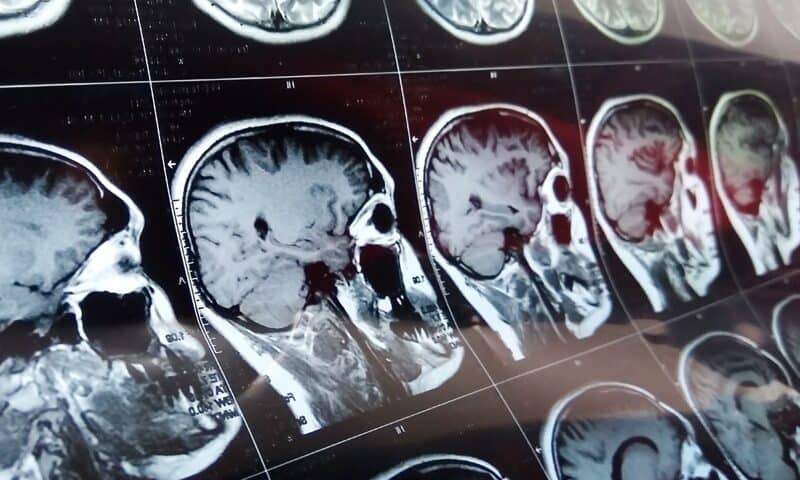Things are looking up for Aptinyx, whose stock has been down in the dumps since its lead asset flopped in diabetes-linked pain last year. The company’s post-traumatic stress disorder (PTSD) treatment topped placebo on a composite measure of PTSD symptoms, teeing up an FDA meeting and a pivotal trial next year.
The phase 2 study tested two dose levels of the drug, NYX-783, in 153 patients with PTSD. Both doses, 10 mg and 50 mg given daily, beat placebo at improving patients’ scores on the Clinician-Administered PTSD Scale for DSM-5 (CAPS-5), a questionnaire that measures various symptoms of PTSD such as hypervigilance, irritability and aggression, reckless or self-destructive behaviors and sleep disturbances.
After four weeks of treatment, more than three-quarters of patients on the higher dose of NYX-783 (78%) achieved a 30% improvement on their CAPS-5 score, compared to 44% of patients who took placebo. Over that same time period, half of the treatment group saw a 50% improvement in their CAPS-5 score, versus 26% of patients on placebo.
“We are very pleased with these impressive results, which surpassed our expectations for this initial exploratory study and clearly indicate the strong potential of NYX-783 to rapidly and reliably address some of the most challenging symptoms of PTSD,” Aptinyx CEO Norbert Riedel, Ph.D., said in a statement Monday afternoon.
“People suffering from PTSD have immense unmet medical needs and the few existing therapeutic options offer limited benefit. We believe these results indicate that the mechanism of NYX-783, which modulates NMDA receptors to enhance extinction learning, addresses the putative underlying pathology of PTSD,” Riedel added.
Aptinyx went public in summer 2018, pricing its IPO at $16 per share and reeling in $102 million. But those shares took a nosedive just seven months later when the company revealed that its lead asset, NYX-2925, failed to beat placebo in a phase 2 trial testing it in diabetic peripheral neuropathy.
That study pitted three dose levels of NYX-2925 against placebo, finding the middle 50-mg dose to be most effective. Although it cut pain scores by more than the 200-mg dose did, it still didn’t deliver a statistically significant edge over placebo.
Despite the poor showing, Aptinyx is still chugging along with NYX-2925. It recently restarted enrolling patients in a phase 2 trial testing it as a treatment for pain in patients with fibromyalgia. It expects to report top-line data in early 2022.
“Coupled with the positive evidence of biological activity relevant to central pain processing from our recently announced interim analysis of a fibromyalgia study, we believe the total body of clinical data indicates the potential of NYX-2925 to treat chronic pain. We will continue to interrogate the full dataset to determine the most appropriate path forward for NYX-2925 in development for chronic pain,” Riedel said in January last year.

